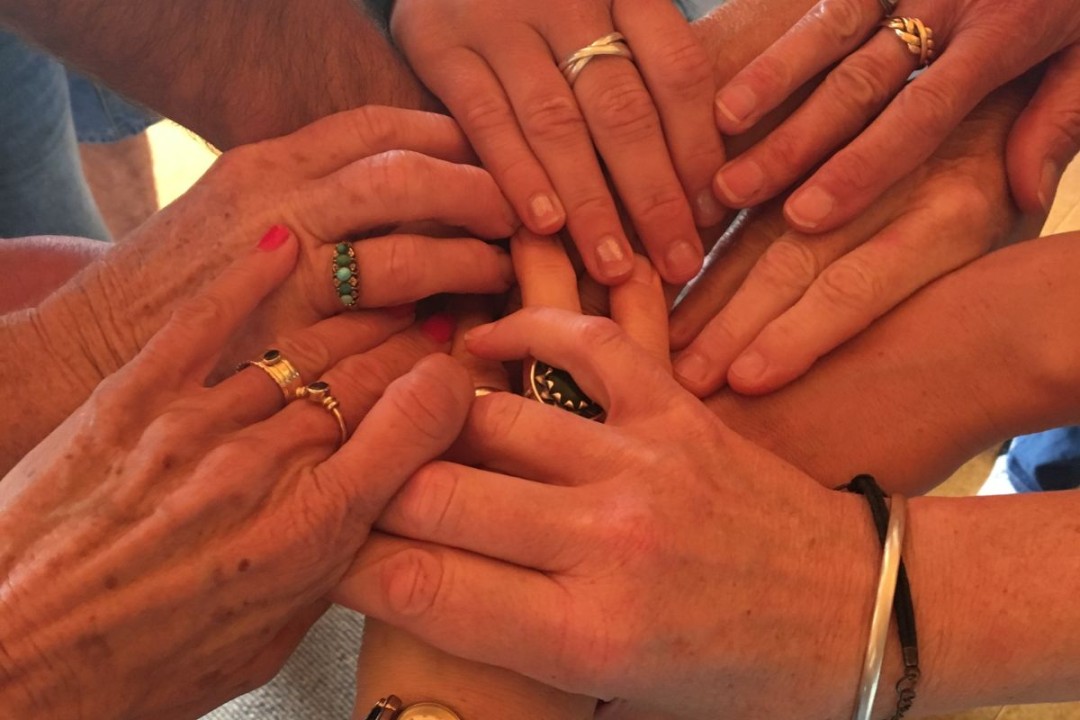Deceived By Our Own Minds
January 6th, 2024 Guest Posts 8 comments

This guest posts comes from long-time member @daveh, who has been sharing his wisdom with the community for a long time and is much appreciated for his views on addiction.
=======
We are not bad or broken people, we are deceived, deceived by our own minds. It seems inescapable but it is not. Recovery is always possible, despite how dire the situation appears.
At its core alcoholism is irrational, so searching for psychological explanations is a lost cause… it will only mislead you. The real problem is that our minds are determined to be wayward in ways that appear real, though they are not. There are some occasions when there is another cause of trauma but that is seperate issue, and one to be treated distinctly. Alcoholism stands alone.
There are three distinct phases of addiction.
1. The first is the craving sensation that we get, and it is entirely automatic. Cravings gradually increase in intensity, but they share the same cause. They are all cravings of varying compulsion. We do not choose these feelings we get, they are chosen for us. They are created in what’s called the “dopamine reward system” of our brain (the reward system for short) and the way an alcoholic’s reward system works guaranties an unwanted result. We over value the benefits of alcohol while discounting its detriments. This isn’t a conscious action, it happens in our subconscious mind where we have no awareness of its actions at all. The entire reward system operates entirely automatically without reference to the conscious mind at all – we are not aware of its workings. All we get is an accumulating insistence that we acquire alcohol, with no inkling as to why. But it gets progressively more demanding.
2. The second that thing that occurs is this… we start to get thoughts of drinking when others would choose to refrain. This unreasonable chatter in our heads wouldn’t be problematic if it were less convincing, but it becomes utterly overwhelming… we need a drink now, and we deserve a drink now. In the end it will be so compelling that we drink alone to avoid the shame of it. It is the avoidance of shame that causes this, not directly alcohol, but its capacity is insidious. It is the acknowledgment that we drink far more than society approves of. But there is a third change is that is most damaging in the long term.
3. The third change affects our emotions in ways that are oblivious to us, they occur in the sub-subconscious mind that we have no direct control over or awareness of. But they are dramatic. They are changes to our brain chemistry, and they too are cumulative. They lower our sense of happiness, increase anxiety, and impart an imminent sense of doom, and this happens completely automatically. There is no conscious thought involved whatsoever and we aren’t aware that this is even happening to us.
The brain chemistry changes occur gradually, like all other changes in alcoholism, in that they are cumulative and progressive. Adrenaline works within us, then the other simple stimulants start changing, and then the neurotransmitters controlling the way we feel get deformed… and that deforming of the emotions is what causes it to take such a tight grip on us. Anxiety, fear, frustration, depression take hold, but above all there is an overwhelming hopelessness our predicament… we are without hope. This is the trap that finally locks alcohol in its place and it is seemingly inescapable, but it’s an illusion… a seductive one but an illusion nonetheless.
The changes to our adrenaline alter us. Adrenalin usually is a short term stimulant, but in us the effects become prolonged. The usual way in which adrenaline is used is in small intense bursts, energising muscle power and heightening concentration in times of danger. But in our case the use of adrenaline is prolonged. This makes it always active, causing us to have a pale skin as a result of the oxygen depletion to the upper layers and this is the cause of our grey complexion.
Another brain chemistry change is to cortisol. It helps regulate sleep and accounts for the irregular sleep pattens we experience. This is the cause of us being wide awake in the middle of the night.
Next comes noradrenaline, a powerful stimulant that acts on the muscles directly and acts as a neurotransmitter. It excites the muscle as a stimulant, but it overexcites it as a neurotransmitter. It responsible for the shakes and has nothing to do with nutrition, it is simply overstimulation of the central nervous system. But of the agents being most responsible it is the neurotransmitters that have greatest impact.
There are three main causes of these problems and one notable that isn’t…. Dopamine. Dopamine is responsible for memory enhancement and motivation, but not for the euphoric sensation we get while we are drinking. Its role is to play the part of the fixture, over and over, the imprint of the memory “that was good, do it again”. This accounts for the progressive nature of alcoholism… only the side reinforcing the drinking gets strengthened, the other side does not.
The things that do the harm to us emotionally are; serotonin, gabba, and glutamate, and they are utterly destructive to our well-being.
Gabba and glutamate work in a pair. One of them accelerates brain function while the other simultaneously diminishes it. This has the effect of putting the brain into a permanently agitated state which brings on; anxiety, fear, and a feeling of impending doom.
Serotonin affects our mood and once again the effects are cumulative, there is an incremental burden. What begins as mild depression goes on to become an to overwhelming need to make it all stop. It becomes steadily more debilitating. But not everyone becomes alcoholic, indeed not everyone even has the capacity.
All people share the same reward system but not all people share the same capacity for addiction.
Some people can never become alcoholic while others can, so what makes the difference… our genes.
Some people blame the alcohol industry, others blame drinking with other heavy drinkers, and some others blame drinking in your youth.
This just excuses the fact we were going to wind up having severe drinking problems without the need for any of that. We have an inbuilt desire to drink, full stop.
This can be demonstrated by two things, parents and rats. The parents of adopted alcoholics are far more statistically to carry the condition, which makes it non-inheritable. But it is the second is utterly compelling. Rats bred to be alcohol-seeking rats demonstrate this phenomenon, but the rats seeking alcohol-preferring ones do so every single time. Rodents carry these wayward genes in same ratio, about 7%. It’s genetic.
So the whole story is a concoction as illustrated by facts, a convincing one, a powerful one, but a false one nonetheless… it is an apparition. But how do we see through it?
What brings our lives back together is a hope that things can get better and there is always that hope. So find it in any way that you can. Find faith in the examples of other people or find it in your own faith, they work equally well.
People have gone before and shown the way, but the path is hard.
You will make it if you are persistent. Failure is not a survivable option, so keep going.
Things will get better, and that is my enduring promise to you.
Continue reading
10 Years of Living Sober - Original members speak
One of the most delightful things about Living Sober is the strong connection the people who join our community feel with the site and other members.
August 6, 2024 – 4 comments
Sober Story: Sadie
"I have so much more time, as before I was constantly thinking about my next drink, when I could have my next drink, how I was going to hide my next drink."
January 7, 2024 – 7 comments
Sober Story: Hetti
This week’s Sober Story comes from Hetti, a 68-year-old living in Mosgiel (having relocated about one year ago from Whangarei).
August 30, 2017 – 34 comments
Sober Story: Michelle
This week’s Sober Story comes from Michelle, a 44-year-old living in Auckland.
November 15, 2020 – 14 comments



